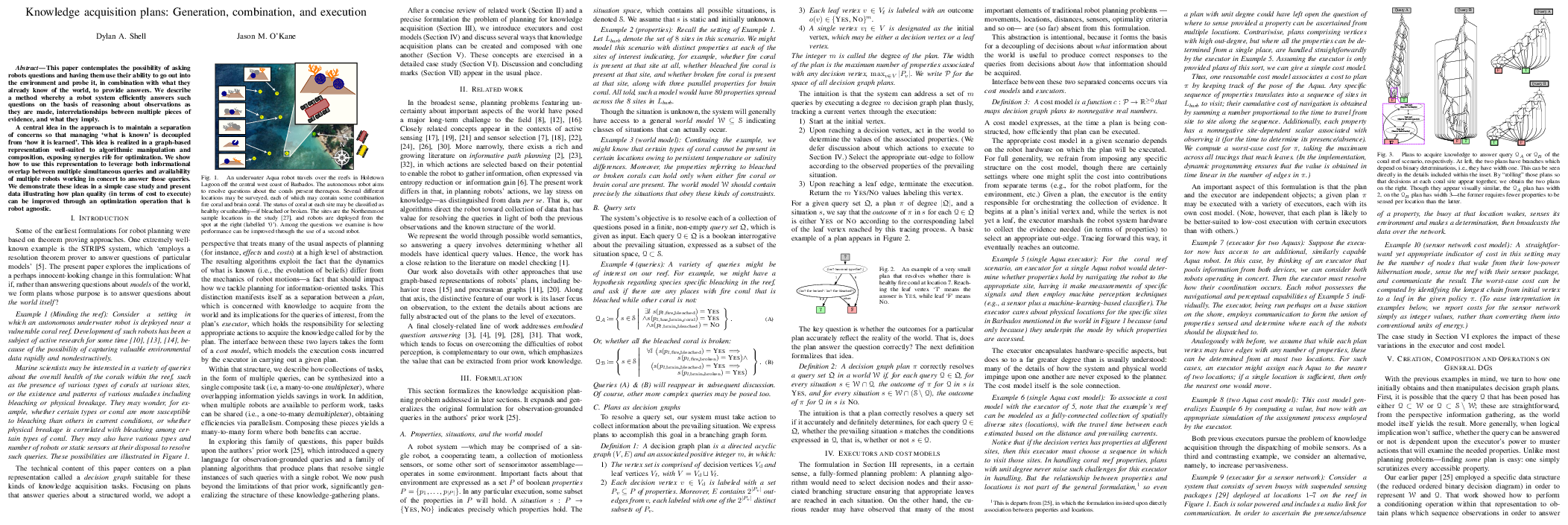 Dylan A. Shell and Jason M. O'Kane
Dylan A. Shell and Jason M. O'KaneAbstract This paper contemplates the possibility of asking robots questions and having them use their ability to go out into the environment and probe it, in combination with what they already know of the world, to provide answers. We describe a method whereby a robot system efficiently answers such questions on the basis of reasoning about observations as they are made, interrelationships between multiple pieces of evidence, and what they imply. A central idea in the approach is to maintain a separation of concerns so that managing 'what is known' is decoupled from 'how it is learned'. This idea is realized in a graph-based representation well-suited to algorithmic manipulation and composition, exposing synergies rife for optimization. We show how to use this representation to leverage both informational overlap between multiple simultaneous queries and availability of multiple robots working in concert to answer those queries. We demonstrate these ideas in a simple case study and present data illustrating how plan quality (in terms of cost to execute) can be improved through an optimization operation that is robot agnostic.
@inproceedings{SheOKa24,
author = {Dylan A. Shell and Jason M. O'Kane},
booktitle = {Proc. IEEE International Conference on Robotics and
Automation},
title = {Knowledge acquisition plans: Generation, combination, and
execution},
year = {2024}
}
